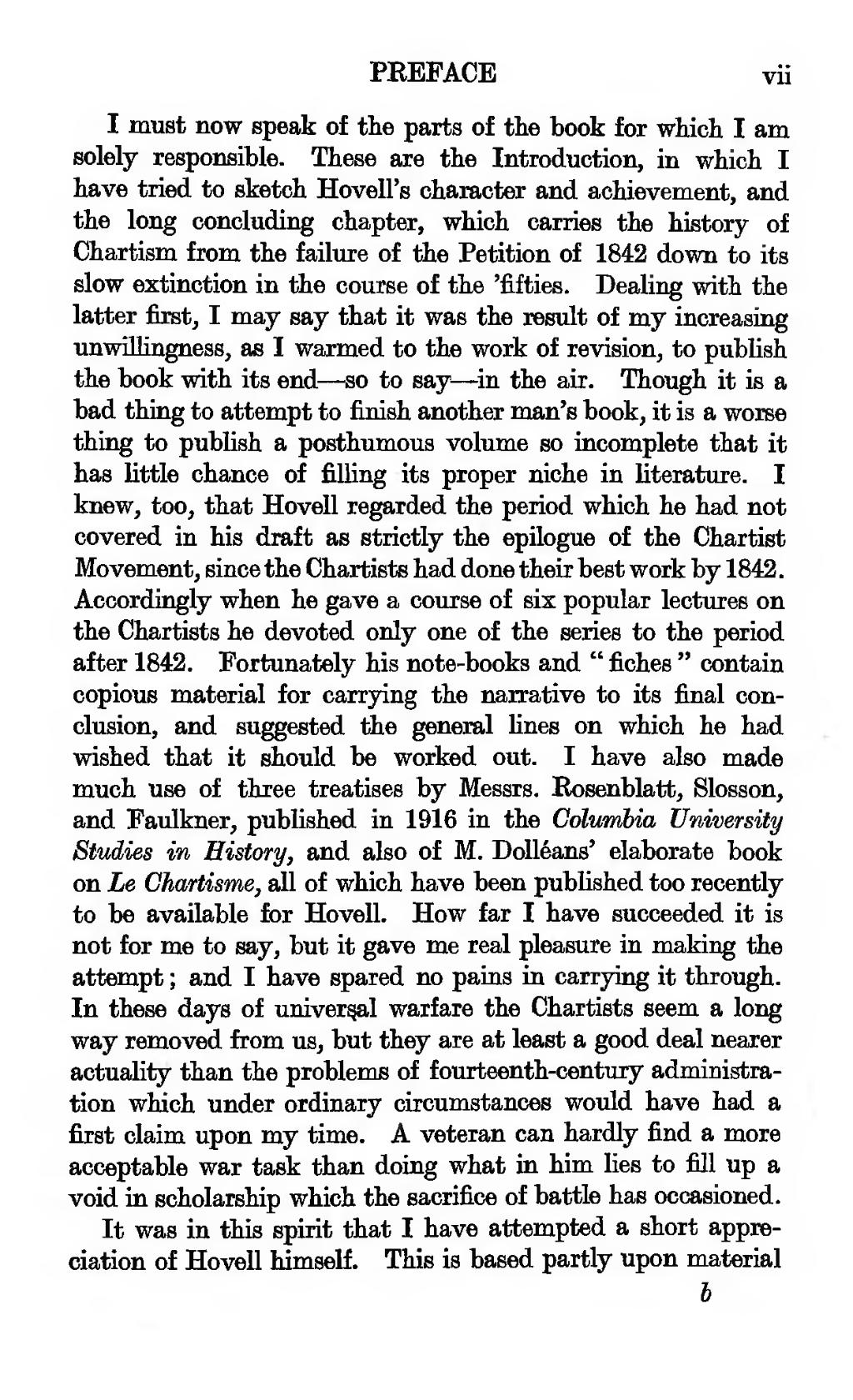I must now speak of the parts of the book for which I am solely responsible. These are the Introduction, in which I have tried to sketch Hovell's character and achievement, and the long concluding chapter, which carries the history of Chartism from the failure of the Petition of 1842 down to its slow extinction in the course of the 'fifties. Dealing with the latter first, I may say that it was the result of my increasing unwillingness, as I warmed to the work of revision, to publish the book with its end—so to say—in the air. Though it is a bad thing to attempt to finish another man's book, it is a worse thing to publish a posthumous volume so incomplete that it has little chance of filling its proper niche in literature. I knew, too, that Hovell regarded the period which he had not covered in his draft as strictly the epilogue of the Chartist Movement, since the Chartists had done their best work by 1842. Accordingly when he gave a course of six popular lectures on the Chartists he devoted only one of the series to the period after 1842. Fortunately his note-books and "fiches" contain copious material for carrying the narrative to its final conclusion, and suggested the general lines on which he had wished that it should be worked out. I have also made much use of three treatises by Messrs. Rosenblatt, Slosson, and Faulkner, published in 1916 in the Columbia University Studies in History, and also of M. Dolléans' elaborate book on Le Chartisme, all of which have been published too recently to be available for Hovell. How far I have succeeded it is not for me to say, but it gave me real pleasure in making the attempt; and I have spared no pains in carrying it through. In these days of universal warfare the Chartists seem a long way removed from us, but they are at least a good deal nearer actuality than the problems of fourteenth-century administration which under ordinary circumstances would have had a first claim upon my time. A veteran can hardly find a more acceptable war task than doing what in him lies to fill up a void in scholarship which the sacrifice of battle has occasioned.
It was in this spirit that I have attempted a short appreciation of Hovell himself. This is based partly upon material
